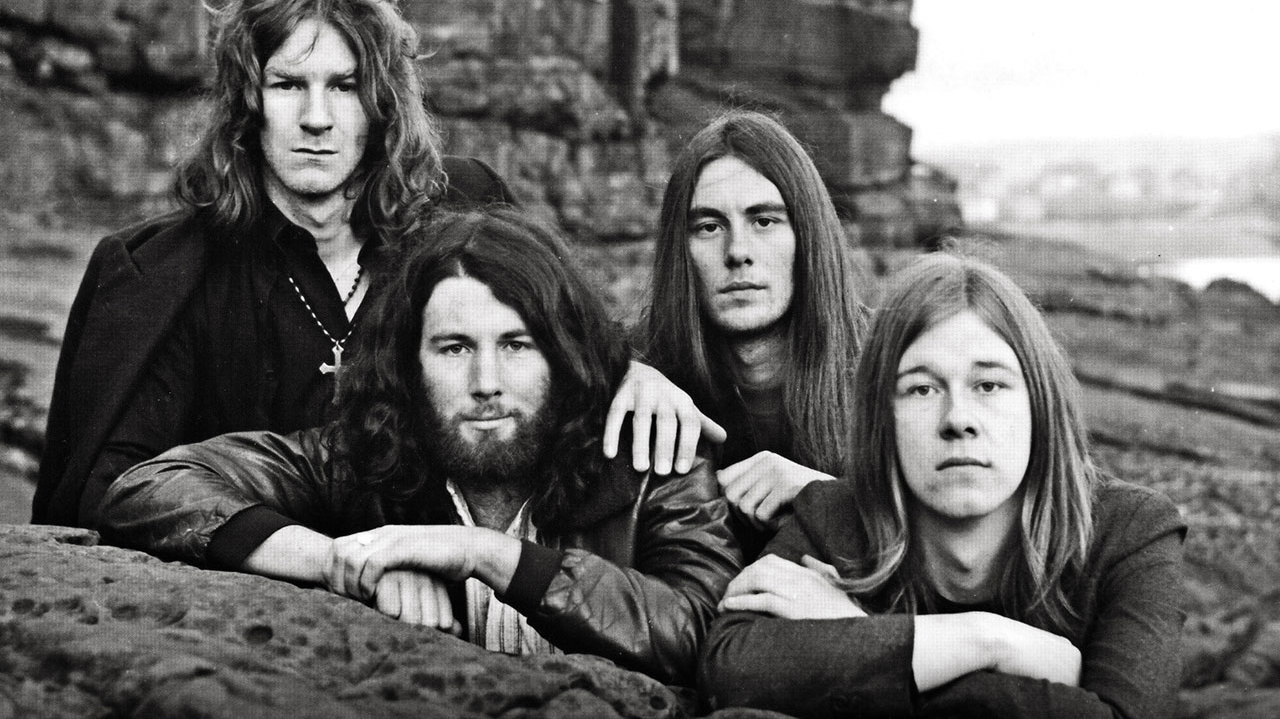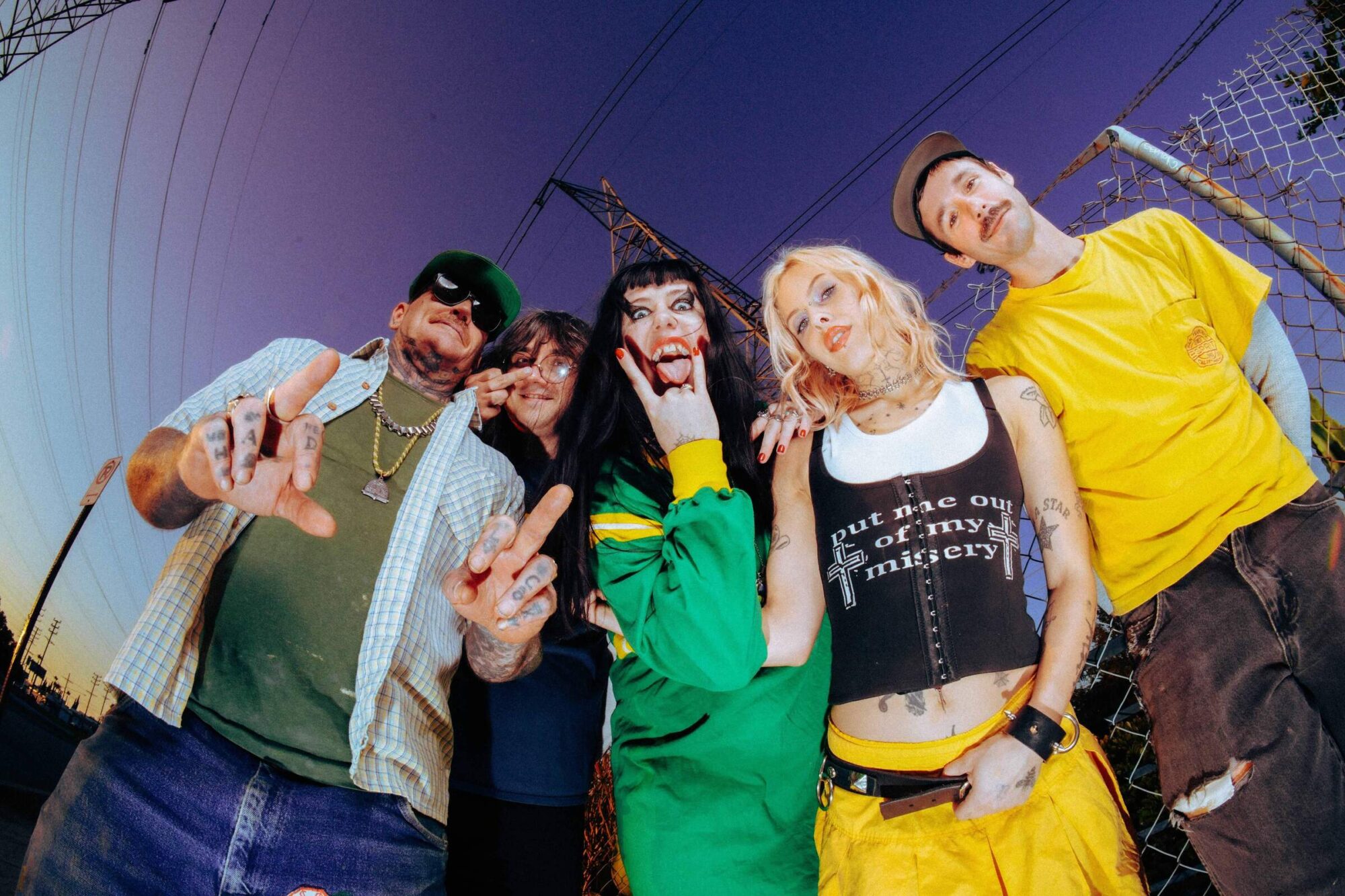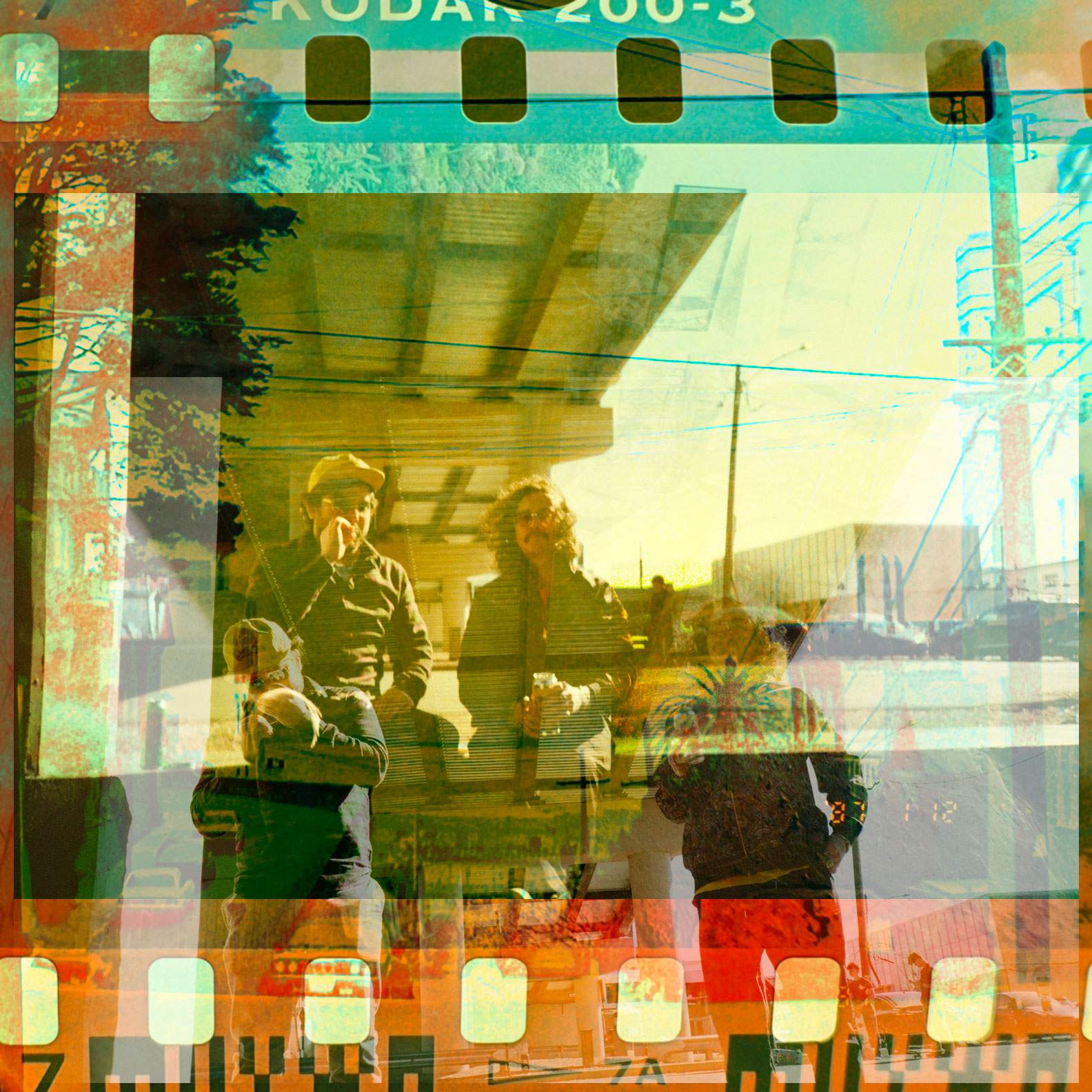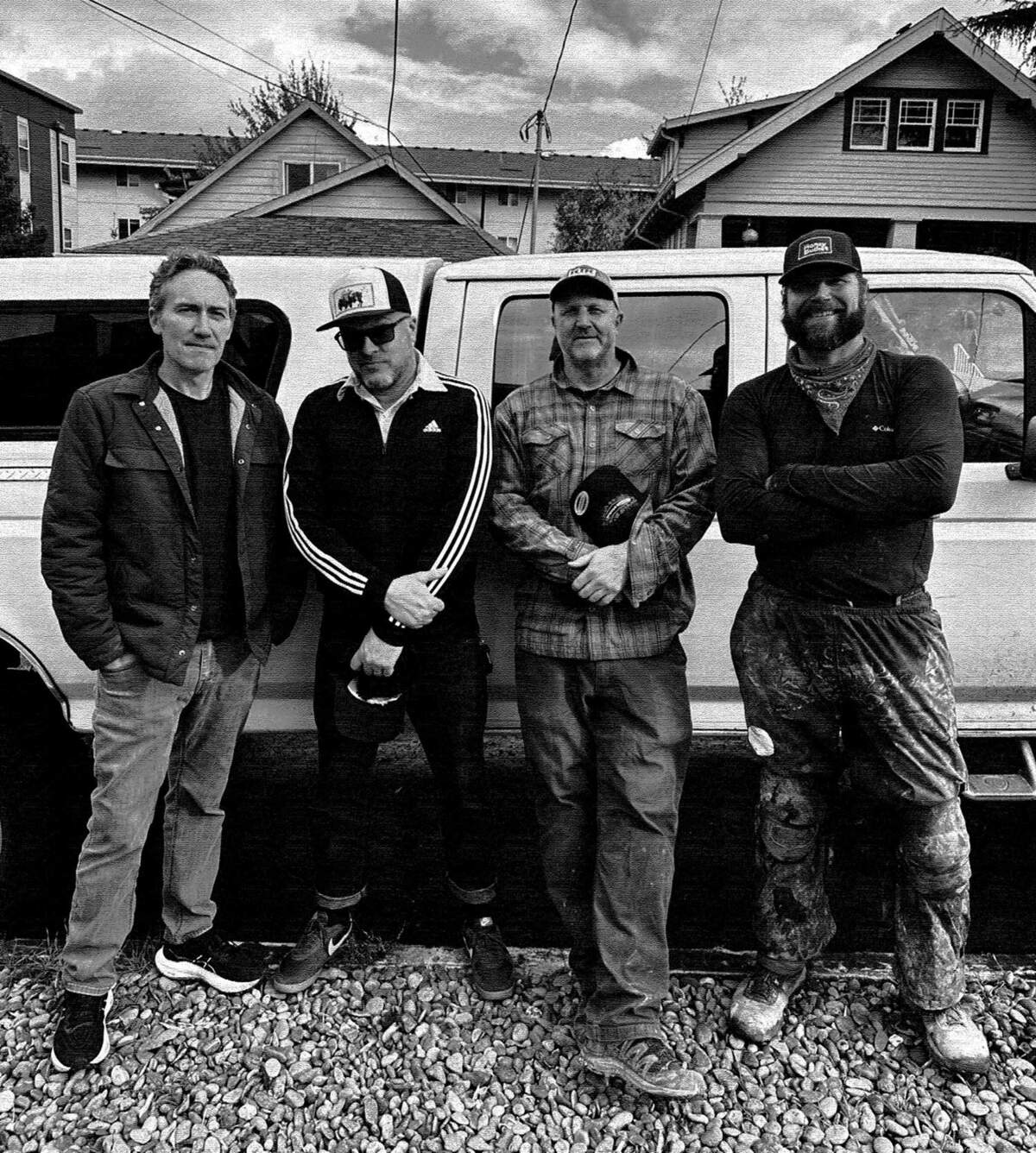Necromandus: From Orexis of Death to the Sabbath Orbit — A Forgotten Heavy Trip
From the humble youth clubs of Cumbria emerged Necromandus, a band whose sound was as dense and heavy as a northern fog, bearing the unmistakable mark of Black Sabbath yet always uniquely their own.
Drummer Frank Hall, self-taught and inspired by early blues and the Rolling Stones, found his rhythm before forming Hot Spring Water with Dennis McCarten and Billy Branch. The name “Necromandus” perfectly captured their evolving progressive sound. Hall’s first encounter with guitar virtuoso Barry Dunnery was famously brusque, with Dunnery telling him to return “when you’re brilliant.” Yet, this inauspicious start forged a powerful musical bond. Frank vividly recalls a rehearsal where the synergy between him, Barry, Dennis, and Bill Branch truly ignited, forming the very core of the Necromandus sound.
Their distinctive style soon caught the ear of Tony Iommi of Black Sabbath, who, impressed by their technical mastery and unusual time changes, became their manager. Iommi secured gigs, a Birmingham rehearsal space, and a coveted spot on Sabbath’s 1973 UK tour.
The recording of ‘Orexis of Death’ brought memorable moments, including Rick Wakeman of Yes contributing to the album for a crate of Guinness. Iommi’s own guitar contributions further underscored his belief in the band. Necromandus toured with Sabbath, famously demolishing venues, though Hall humorously insists they were “the good guys.”
Heartbreakingly, Vertigo Records inexplicably shelved ‘Orexis of Death.’ Dunnery’s debilitating fear of flying scuttled a crucial US tour, a blow Hall believes changed everything. Despite this, the album’s visceral punch, particularly McCarten’s “wall of sound” bass, remains strikingly forceful.
Post-Necromandus, Hall and Dunnery briefly joined Ozzy Osbourne’s Blizzard of Ozz, then formed the uncommercial project Nerves. Hall later joined Hammerhead, which, despite compelling music, never secured a record deal, though they released a single and gained airtime.
In 2016, Hall briefly revived Necromandus but admits his heart wasn’t in it. He remains resolute: Necromandus was ahead of their time, crafting complex music, with Barry Dunnery being one of the best. Though they lacked deserved recognition then, Hall finds solace in their belated appreciation.
Securing an interview with Frank Hall, the sole remaining original member, was challenging; we are grateful to Buzz Elliott for his help. Below, an exclusive interview with Frank Hall sheds more light on their story.

“The audience went totally crazy and ripped out the first five rows of seats.”
Where did you grow up, and what was the local music scene like back then? Any decent venues, or was it more of a pub and backroom sort of thing?
Frank Hall: I grew up on a council estate in Whitehaven, Cumbria. There wasn’t much of a music scene back then in my hometown. The only decent venue was called the Calder Club in Whitehaven. It was a Working Men’s Club.
What were some of the first bands you remember seeing live? Any that really blew your mind and made you want to play?
Frank: The first live band that had a significant effect on me was a band from Carlisle called “The Tribe,” who played at the St. Benedicts Club on a warm summer’s Sunday night in the housing estate of Mirehouse in Whitehaven. I just happened to be passing by on my bicycle, and I heard them playing ‘It’s All Over Now’ by the Rolling Stones. They sounded great. I knew there and then that I had to be in a band.
What got you into drumming in the first place? Were you one of those kids always banging on the furniture, or did it come later?
Frank: I always found myself tapping out rhythms to my favourite tunes on tables and furniture, so I realised then that I had to get a drum kit, even though I hadn’t a penny piece or the first idea of how to play.
Do you remember your first drum kit? Was it a proper setup, or more of a thrown-together affair?
Frank: My first drum kit was a British-made kit called “Beverley,” that was made in Beverley, a town in the County of Yorkshire.
Were there any drummers you looked up to when you were starting out, or did you just figure things out on your own?
Frank: There were a lot of drummers I looked up to when starting out. The main ones that inspired me were John Bonham, Keith Moon, Ringo Starr, Buddy Rich, Ginger Baker, and Mitch Mitchell.
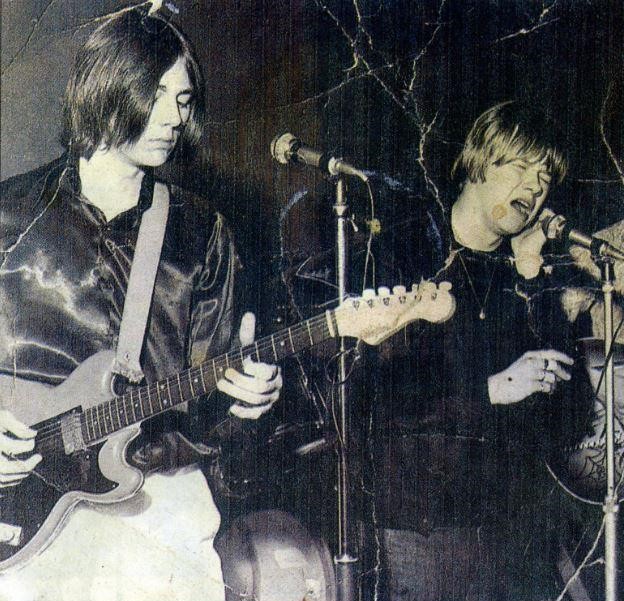
Regarding Jug and Heaven: what kind of stuff were you playing in those bands? More bluesy, heavy, or something else entirely?
Frank: Jug and Heaven were both very blues-based bands.
How did Jug and Heaven morph into Hot Spring Water? Was it a gradual shift, or did it feel like a completely new band?
Frank: Two of the musicians from Heaven, Mick Smitham and Rod Beaumont, decided to leave the band because they wanted to play a different style of music. So the remaining members, Barry Dunnery and Billy Branch, ended up merging together with Dennis McCarten and myself from Jug. We then decided to rename the band Hot Spring Water, which felt like a completely new band compared to what we had all been doing.

Where were you gigging back then? Did you manage to get out of town much, or was it mostly local shows?
Frank: We were gigging as Hot Spring Water in places around the county such as Wigton Market Hall, and clubs in Carlisle such as The Pagoda, The Cosmo, and The Twisted Wheel. These were all places out of town but mainly still in the same county.
You went from Hot Spring Water to Taurus, and then finally to Necromandus. How did that all come about?
Frank: We went through a few name changes, including some gigs under the name Heavy Hand, but eventually I suggested we change the name of the band to Necromandus because it looked and sounded like a better name for the progressive style of music that we had started to write at the time.
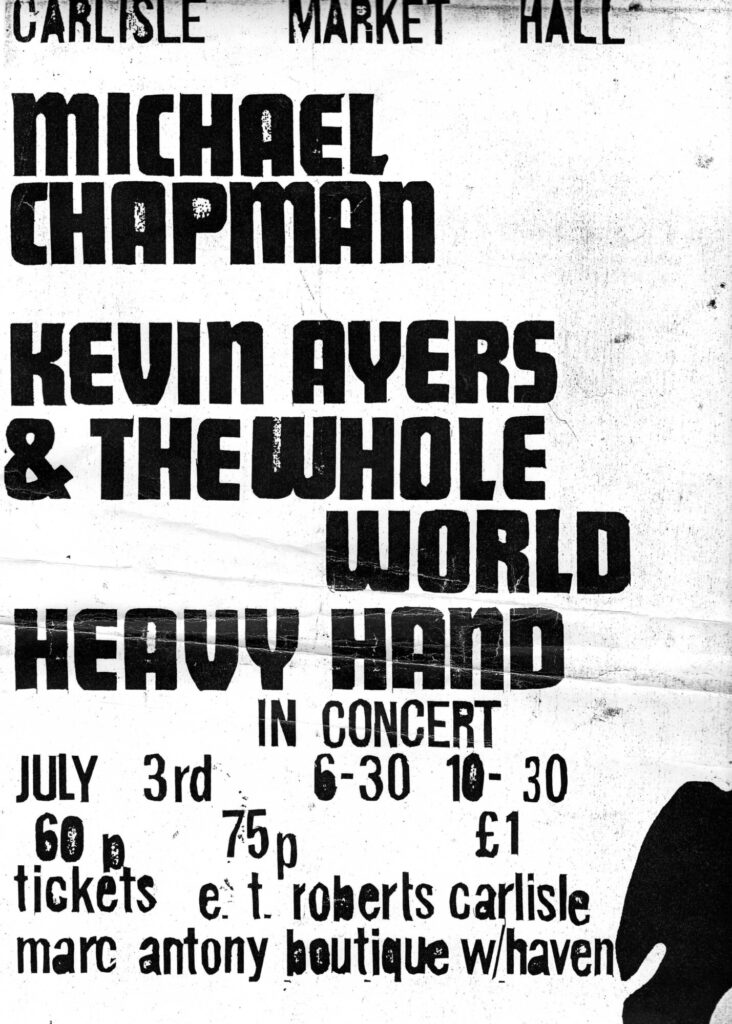
What do you remember about first meeting Barry Dunnery, Dennis McCarten, and Bill Branch? Did you click right away, or did it take a while to gel as a band?
Frank: The first time that I met Barry Dunnery, I heard that he was looking for a drummer and a bass player. So I went to his home and knocked on the door. When he came to the door, he had a guitar around his neck, and I said, “Hi Baz, I hear you’re looking for a drummer and bass player? My friend Dennis is a great bass player, and I play drums,” to which Baz said, “Are you any good?” I answered, “I’m not brilliant, but I’m still learning,” to which Baz said, “Come back when you’re brilliant,” and closed the door.
I had known Dennis McCarten for years. We first met when we were five years old. I met Bill Branch at a local youth centre called the Wyndam Youth Centre in a town called Egremont, where we got chatting about blues music, and we just clicked straight away.
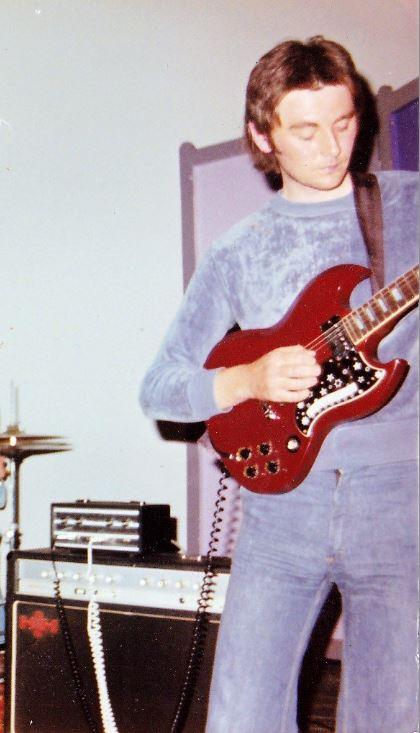
Was there a particular moment when you thought, “Right, this band is really onto something now”?
Frank: The four of us began writing and rehearsing. One day we had just had a rehearsal in that same youth centre where I had first met Bill, and that was it. Everything just clicked together, and we were all synchronised with each other.
So, 1972. You had been gigging a lot but had not managed to land a record deal yet. Then Tony Iommi comes into the picture. How did that happen?
Frank: Tony Iommi saw us playing a gig at a West Cumbrian venue called the Tow Bar. He had heard about us through word of mouth, so he turned up and told us he liked what we were doing. I suppose what we were doing was an early version of prog rock. Black Sabbath also played at that venue in those days. They were very popular in West Cumbria well before they became famous.

What was Iommi like as a manager? Was he properly involved, or was it more of a name association thing?
Frank: Tony Iommi was a brilliant manager. He was very organised and properly involved. He got us gigs and also arranged a base for us in Birmingham that we could work from for writing new material. He even invited us to play as support band on Black Sabbath’s 1973 UK tour along with Badger.
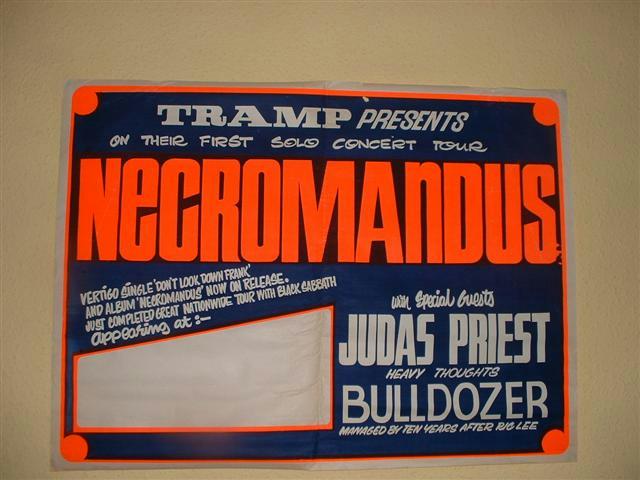
Did he ever try to push you in a Sabbath-like direction, or was he happy with whatever you lot were doing?
Frank: He loved what we were doing and described it as progressive rock. He also referred to it as technical rock. He loved the unusual quirky time changes that we were incorporating into our music. He said it reminded him of the band Yes.
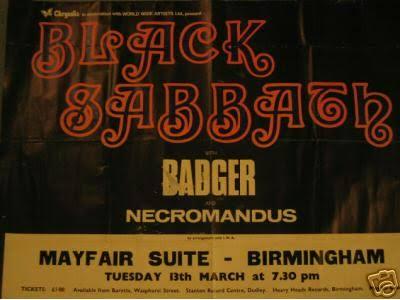
What do you remember about recording Orexis of Death at Morgan Studios? Any good stories from those sessions?
Frank: The recording of ‘Orexis of Death’ was something else for us. Laying the tracks down and doubling the guitar parts was a whole new ball game for us. The first morning at Morgan Studios, I walked into the studio and to the right-hand side there was a small room. Straight away I recognised the man sitting in front of the Revox reel-to-reel tape recorder. It was Rick Wakeman from the band Yes. So me being nosey and a bit forward, I asked Rick what he was on with. He was really nice and replied, “I’m recording my new album ‘The Six Wives of Henry VIII’.” So me being a bit cheeky, I asked him if he would put keyboards on our album, and he said yes. I asked him what it would cost us to do so, and he said with a big smile, “Could you go as far as a crate of Guinness?” Ha ha!
Iommi played some guitar on the title track. Was that planned, or did he just pick up a guitar one day and join in?
Frank: On one particular day, Tony asked if he could put guitar on a certain track. As the day progressed, he ended up putting some guitar parts on three of our tracks.
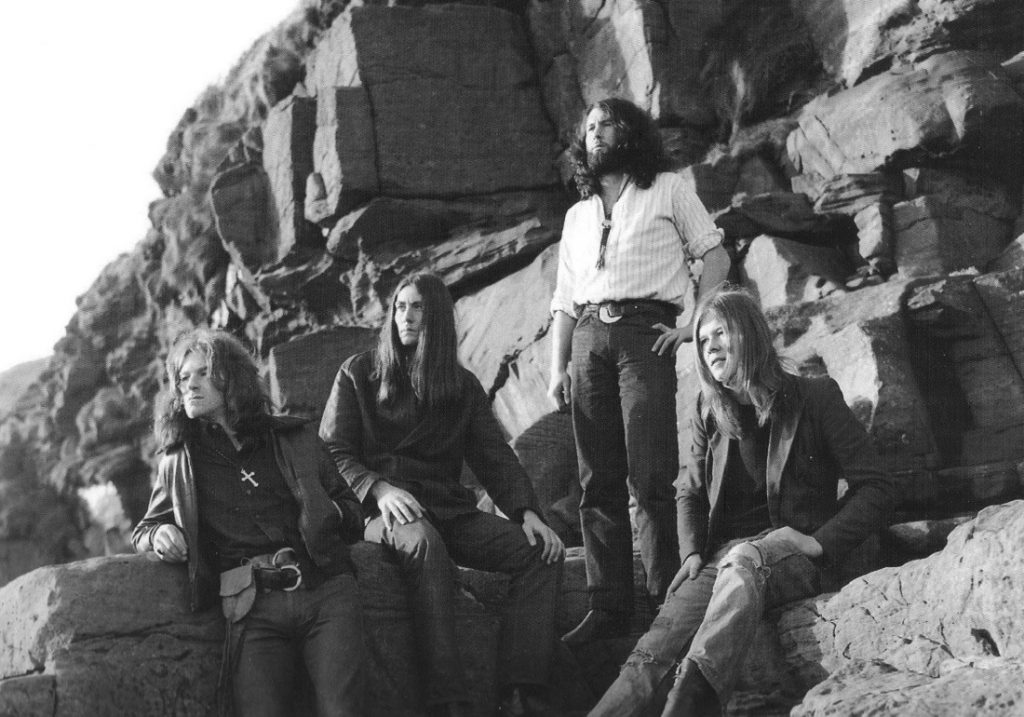
How did songwriting work in Necromandus? Was it a group effort, or did certain members take charge of certain parts?
Frank: The songwriting for Necromandus was mainly Baz, who would come up with the ideas and arrangements. Bill would provide the lyrics and vocal melodies. Bill’s lyrics were often very poetic and thoughtful, often based on what was happening around him at the time. He had a powerful voice with a rasping quality to it at times. He was quite a unique singer with his own very distinctive style. His mum also wrote poetry, and I believe he drew some inspiration from her in the way that he wrote lyrics himself.
What was it like touring with Sabbath? Any gigs that stand out as particularly brilliant or completely disastrous?
Frank: The chance to get onto that tour was a great opportunity for us and a great experience. The one gig in particular that stands out in my mind was when we were touring with Sabbath and playing at the Green’s Playhouse in Glasgow. The audience went totally crazy and ripped out the first five rows of seats in the venue, and I thought to myself, “This must be some kind of Scottish tradition!”
Things were a bit mad back then. Any particularly wild nights on tour? Booze, drugs, complete chaos?
Frank: You might imagine that it would have been like that, especially back then in the 1970s, but the reality is we had no bad nights on that tour. We were the good guys on the tour and always on our best behaviour.
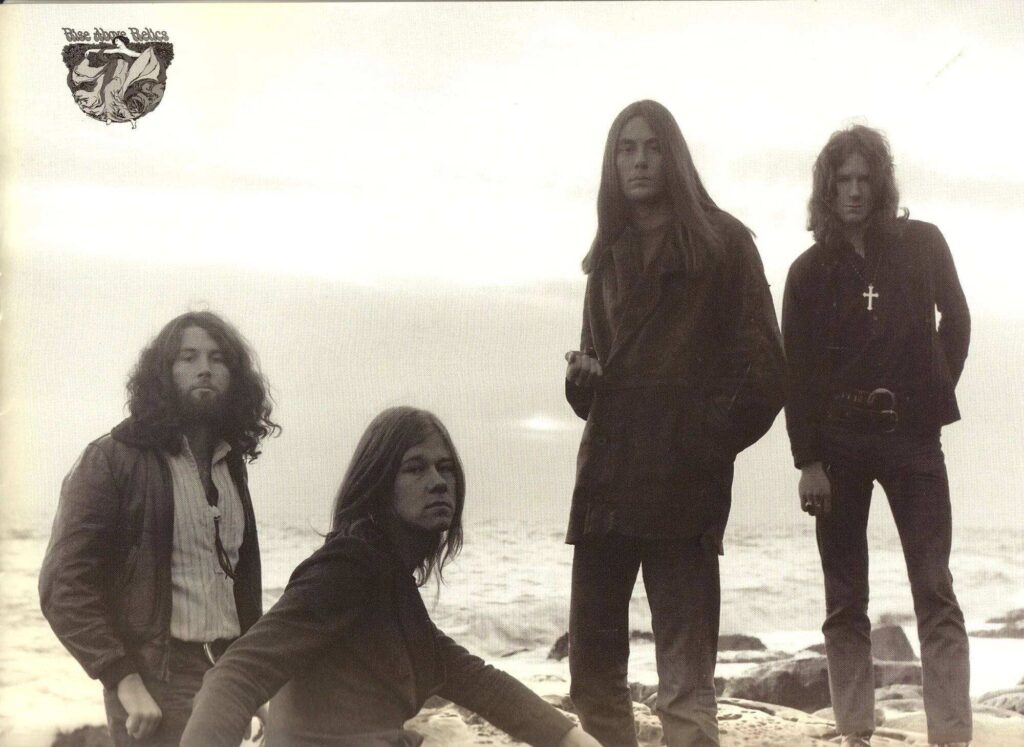
“We were offered the opportunity to go to America by Tony Iommi.”
So ‘Orexis of Death’ gets finished, you are gigging with Sabbath and Badger, and then suddenly Vertigo shelves the album. What happened?
Frank: We were offered the opportunity to go to America by Tony Iommi, who was still managing us. But Baz had a real fear of flying, and at the very last minute he decided that he would not go through with it. That decision and a number of other situations that occurred around that time were probably factors in Vertigo’s decision to shelve the prepared album.
Do you think it would have changed the band’s fate if the prepared album had come out at the time
Frank: It is hard to say for sure, but personally I believe that if ‘Orexis of Death’ had been released as planned, then it almost certainly would have changed the fate of the band. It is such a shame that Vertigo made the decision not to release it after all the hard work getting it together.
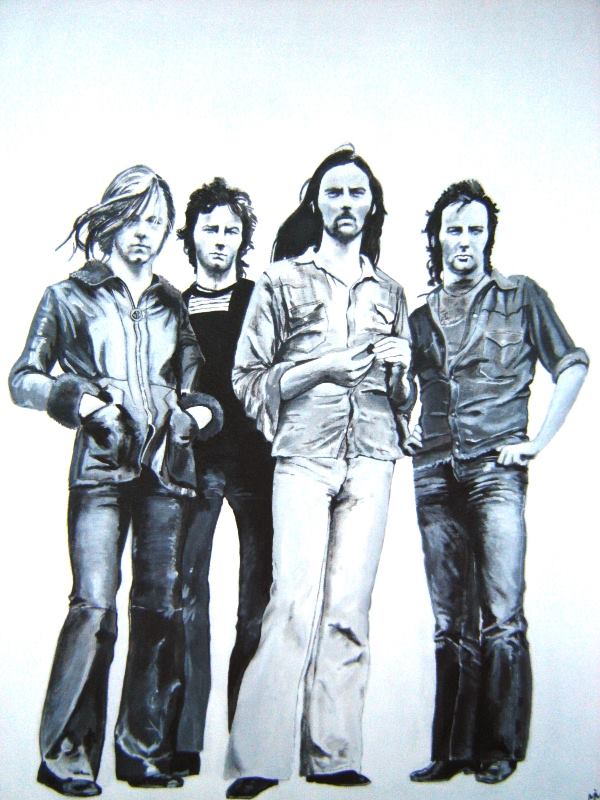
There is a real ominous, almost conceptual feel to the album. Was there a bigger story or idea behind it, or was that just the vibe that came out naturally?
Frank: As I recall, there was no intentional hidden concept. We were simply writing and recording what felt natural to us. Each song was individual, and in a live situation those songs came out with more of an aggressive edge to them. We were a loud band, and Dennis’s bass in particular was like a wall of sound when we were playing live.
A few years later, you, Barry Dunnery, and Dennis McCarten end up as the original ‘Blizzard of Ozz’ lineup. How did that all come together?
Frank: The reason that we became the original early version of ‘Blizzard of Ozz’ was due to Ozzy being sacked from Black Sabbath.
Obviously Ozzy was already aware of us, and he had a good friend of ours called Dave Tangye working for him. So Ozzy sent Dave back to West Cumbria to ask us (Baz, Dennis, and I) if we would go down to rehearse with him at his place, and that is basically how it all came about.

What was Ozzy like in 1977? Was he focused on getting something new going, or was it a bit more all over the place? Also that lineup did not last long. Why do you reckon it did not stick?
Frank: Back in 1977, it seemed to me that Ozzy was not really focused on what he actually wanted at all. He seemed to be a bit of a troubled soul, and this may have been one of the factors in why this lineup did not last very long. We never really knew the reason why he seemed to be this way.

After Necromandus, you and Barry formed the band Nerves. What was the idea there? Was it just a bit of fun, or were you trying to go in a new direction?
Frank: Nerves was just a bit of fun for me and Barry. We were not really into it, and we could not really get the right vibe, although it was a very popular band with many local people that followed us.
When Barry left to join Violinski, were you ever tempted to go down a more commercial route yourself?
Frank: When Barry left Nerves to work with Violinski, I had no interest in going down the commercial route. Too simplistic. Although the band Nerves did continue to play regularly locally for a number of years, building up a sizable local following, and produced some very interesting original material as well as playing a number of well chosen covers that the fans of the band loved.

You later played in the band Hammerhead, which was part of the whole NWOBHM scene (New Wave of British Heavy Metal). How did you first meet Buzz Elliott from Hammerhead?
Frank: I first met Buzz Elliott in a bar that I was playing in. Buzz was a very keen fan of Nerves and he came to see us play regularly, so he was always hanging around. When Hammerhead needed a new drummer, I was asked to join them and ended up with them for a couple of years in the mid 80s. Whilst I was with Hammerhead, a studio session was organised where former Necromandus singer Billy Branch came along and contributed the vocals to the two songs that were recorded. ‘Lochinvar’ was originally a song the Hammerhead guitarist Brian Hodgson had played in his previous band Bitter Harvest, and we also re-recorded a new version of the Necromandus song ‘Don’t Look Down’ (which was retitled ‘Nightjar’ on the ‘Orexis of Death’ album). Those two tracks can be heard on Hammerhead’s first album ‘Will to Survive.’

Buzz, what were those early days of Hammerhead like? Do you remember the first gigs and rehearsals?
Buzz Elliott: Hammerhead had formed as a three-piece band around 1978 and were playing all original material at various local venues. I loved watching the band playing live myself, so I was rather excited when their guitarist Brian Hodgson asked me to go and meet up with him for a jam to see how things would sound with two guitars. Even at that first meeting in Brian’s house, it became apparent that we played well together. We both loved the same bands such as Black Sabbath and Wishbone Ash. In fact, the first song we ever played together was ‘Errors of My Ways’ from the very first Wishbone Ash album. I was really thrilled when Brian asked me to join the band. He had become aware of me after he saw me playing in my school band Eight Hertz, and he liked the way that I played. I learned all their existing songs and began to add second guitar parts to complement what Brian was already doing. Then I started writing new material. Much of the Hammerhead set when I joined was slow and heavy, so I suggested writing something more up-tempo, something that the headbangers in the crowd could go crazy to in the mosh pit. My first contribution was the song ‘Time Will Tell’. I was just 19 when I wrote it and I really did not expect to be still playing it in 2025 at the age of 64. But to this day it still goes down well at every gig.

Your first single, ‘Time Will Tell’ / ‘Lonely Man,’ has a proper heavy feel. Was there ever talk of making a full album back then?
Buzz: We had enough good material to record an album, but despite sending demos out to record labels, we just could not get a deal with anyone. The one that really surprised me was NEAT Records, as we were just the kind of thing that they usually worked with, and yet I still have the rejection letter from them in my collection. Without record label backing, we simply could not afford to do it ourselves, and the only reason that the single ‘Time Will Tell’ / ‘Lonely Man’ got recorded was because Brian’s dad offered to pay the studio bill for us.
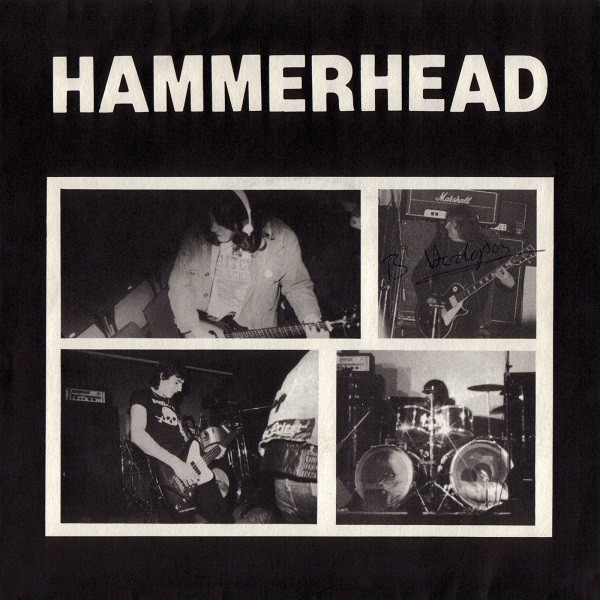
Otherwise that would never have got released either. One of the high points for me back then was getting airplay on Tommy Vance’s Friday Rock Show. He is our hero for that. RIP Tommy. He is one of the few people that had faith in us and recognised that the band had something to offer. He played both sides of our single a number of times.

What were some of the maddest Hammerhead gigs? Anything completely ridiculous or unexpected happen on stage?
Buzz: Having done around 30 interviews for Hammerhead in the past, most of the humorous stories relating to the band have already been told, but a brief synopsis would include:
Having our guitar straps stolen five minutes before hitting the stage, leaving us no option but to make temporary ones out of black gaffa tape so that we could still perform.
Travelling 100 miles to a gig only to find that the venue did not know we were on and had not advertised anything, but we still had to set up and play because a coach full of our home-based fans had travelled over to see us.
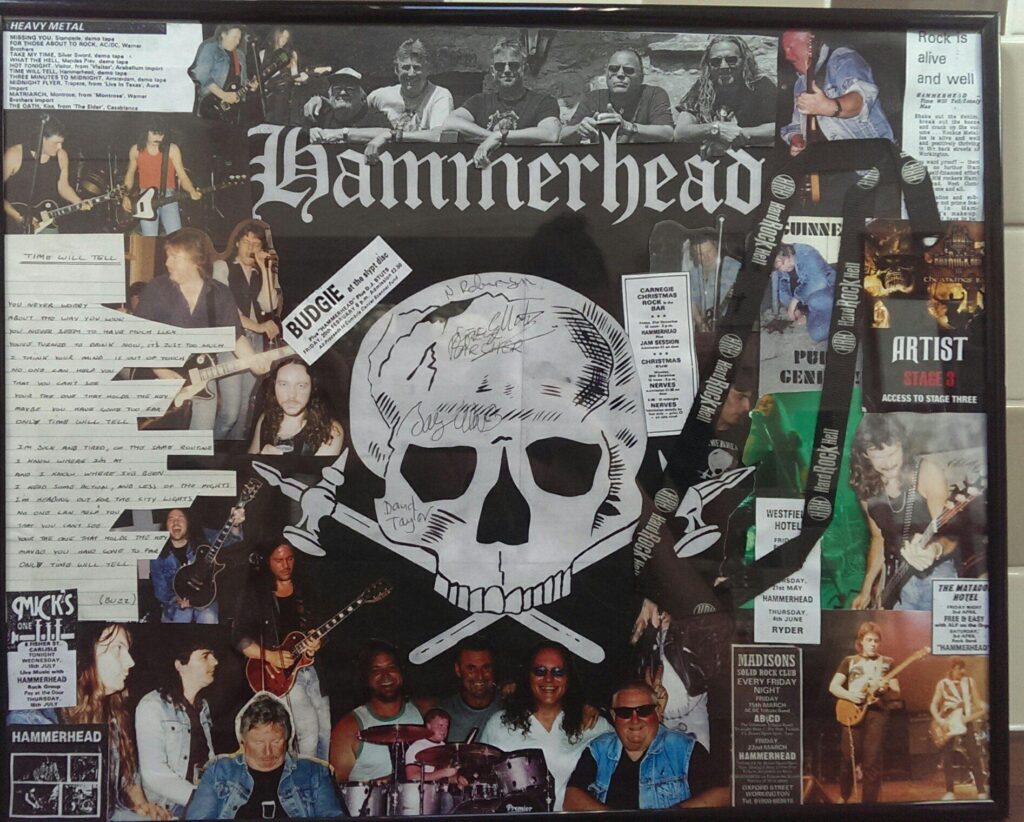
The other guitarist in the band, Brian, was offered a lift home once on the back of a motorcycle but he did not have a crash helmet, so we gaffa-taped a large pub-style ashtray onto his head and off he went as the passenger on the motorbike.
One of our roadies, who was Brian’s lifelong best mate, ended up having a sex-change operation and changed his name to Caroline. Poor Brian still cannot get his head around it.
For a time Brian used one of those effect pedals like Peter Frampton used on ‘Show Me the Way.’ It was an Electro-Harmonix Golden Throat. There is a plastic pipe that comes up from the pedal and is attached beside the microphone so that it feeds the sound of your guitar into your mouth, then out of your mouth and into the microphone. But Brian’s version of this also had a second plastic pipe which went halfway down the mic stand and into a pint of Guinness.
Since reforming around 2004, we have done a few gigs where not many people turned up. The worst example of this was at The Diamond in Mansfield, where the audience consisted of a transvestite and a dog. The club manager was quite impressed that we still took it seriously and played our hearts out that night.
For anyone that follows Necromandus and loves what they were doing back in the day, there are two things that I can recommend checking out. Firstly, in 2012, Baz’s younger brother Francis Dunnery got in touch with me to see if I could help him out with a project that he was planning. His dream was to record an album of his brother’s Necromandus songs, especially some that had never been recorded before in a studio. But he did not have any recordings of the rarer songs, or the song lyrics, or any reference to the original song titles. Before the ‘Orexis’ album was released, all those songs had different and often humorous titles.
In my personal collection of Necromandus rarities, I had several live recordings of the band from the very early 1970s, featuring songs that never made it to the ‘Orexis of Death’ album.
Incidentally, that album was planned to be an eponymous album. The band had planned to release it under the title Necromandus. Anyway, I sorted out all the lyrics and titles for Francis, and he got to work on the album along with some highly talented musician friends of his. It was an amazing experience for me to be even slightly involved in this project.
The resulting double album is called ‘Frankenstein Monster’ (stitched back together). Frankie’s attention to detail on this project is incredible and it all sounds truly amazing. It is without doubt a very rare treat to hear those ultra-rare songs as polished studio recordings with modern production values, and it is an essential album for any hardcore fans of Necromandus. I can recommend it 100 percent.
Secondly, a brilliant musician and producer in the USA called Tony Reed, from the band Mos Generator, got in touch with me to ask about some of the rare material that is in my personal collection. To say that these recordings are lo-fi is an understatement, and the sound was not great. Most of them were recorded by some friends of mine on an old reel-to-reel tape machine using two mics in a hotel bar in Workington where the band played regularly in the early 70s.
Tony Reed is a massive fan of Necromandus and wanted the opportunity to use his studio mastery to enhance the sound on some of this very rare material. Before proceeding with this, I wanted to ask Frank Hall about doing the project, but at the time I was struggling to contact him for permission. I did not know where he was living and I got no reply when I tried ringing the only numbers that I had for him.
Anyway, having met Tony Reed a few times when he was touring in the UK, including a gig in my hometown that I organised so that Tony could actually get to meet Frank Hall, I knew he was a one hundred percent genuine guy. So between us we decided to go ahead and found the best material to use. This also included an ultra-rare demo single featuring the Necromandus song ‘Ministry Man,’ along with the band’s version of the old song ‘Staggerlee,’ which they had retitled ‘Stack-o-Lee.’

After many hours of restoration work in Tony’s studio over a long period of time, a super rare vinyl-only album was released under the title ‘Companion of Death.’ The title was Tony’s suggestion and he chose that so there was a kind of connection and a nod towards the original ‘Orexis of Death’ album. Despite the slightly limited sound quality on some of the live tracks on this album, you do get to hear the amazing dexterity and power of the band and what it would have been like at a Necromandus gig back in the day. Again, this is a must for serious fans of the band. I think it was possibly a limited edition of around 300 copies and the last time I checked, copies of it were still available from Tony Reed’s record label.
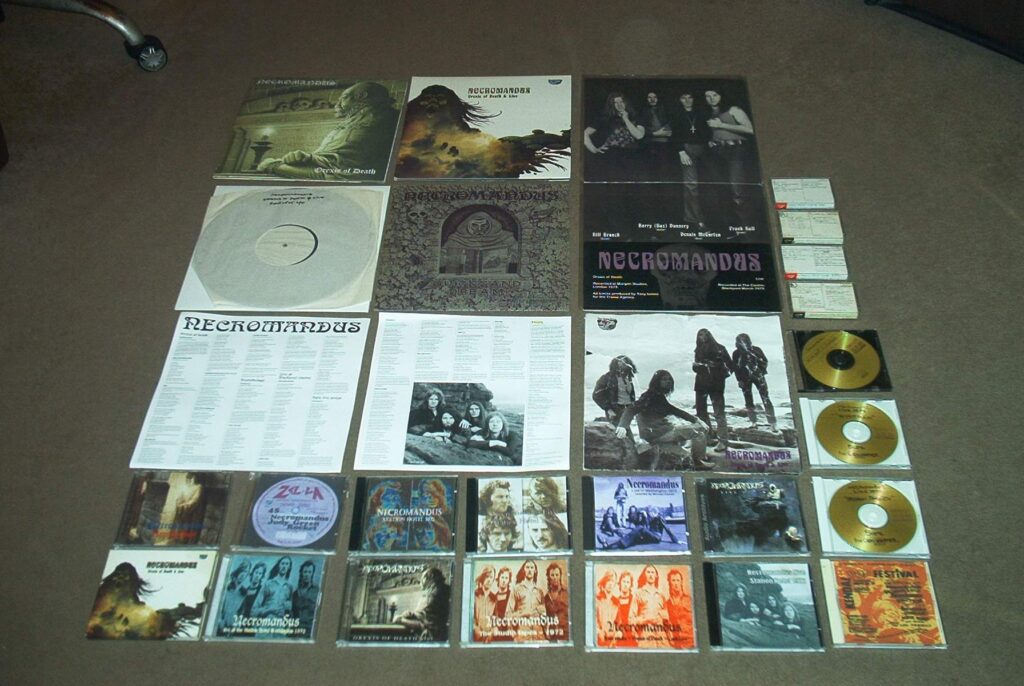
In 2016, Necromandus got revived with a new line-up. As well as the new material that was written for the album, some of the old Necromandus songs were reworked and rerecorded with this new line-up. What was it like revisiting that material after all those years?
Frank: In 2016 when Necromandus got revived, although I went along with it and some outstanding local musicians were involved, I found that my heart was not really in it. The resulting album did turn out very well and we are proud of what we achieved. Some of John Branch’s vocals sound so much like his dad’s that it is spine-tingling to hear, and the musicians did an amazing job recreating the original vibe of the band. There are not many people who could have stepped into Baz Dunnery’s shoes, but local guitarist Dean Newton did a very admirable job throughout the whole album, some of which was recorded using Baz’s old bespoke SG guitar.
How involved were you in the 2017 album? Did it feel like you were finally getting to finish something that had been left undone?
Frank: I was heavily involved in making the new album in 2017, but strangely I did not really feel any satisfaction or closure from it.
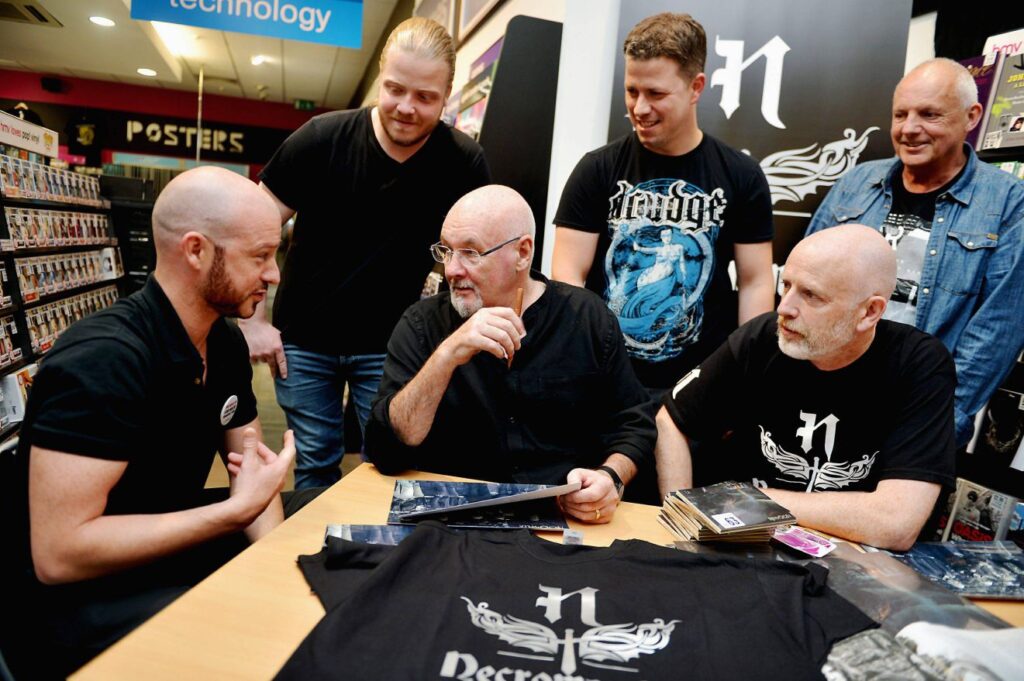
Photo by Tom Kay, Friday 21st July 2017
Looking back, what made Necromandus stand out? Do you think you got the recognition you deserved, or do you feel like you slipped through the cracks a bit?
Frank: Necromandus definitely stood out in the early 70s because we were one of the first Prog Rock bands playing complex stuff to such a high standard, and Baz was surely one of the finest guitarists around at that time. Back in the day things maybe did not work out for us, but I definitely think that over time we have eventually got the recognition that we deserved, as so many people still talk about the band and recognise the quality of the musicianship even today. I think that the music that we created together all those years ago has stood the test of time and still sounds good.
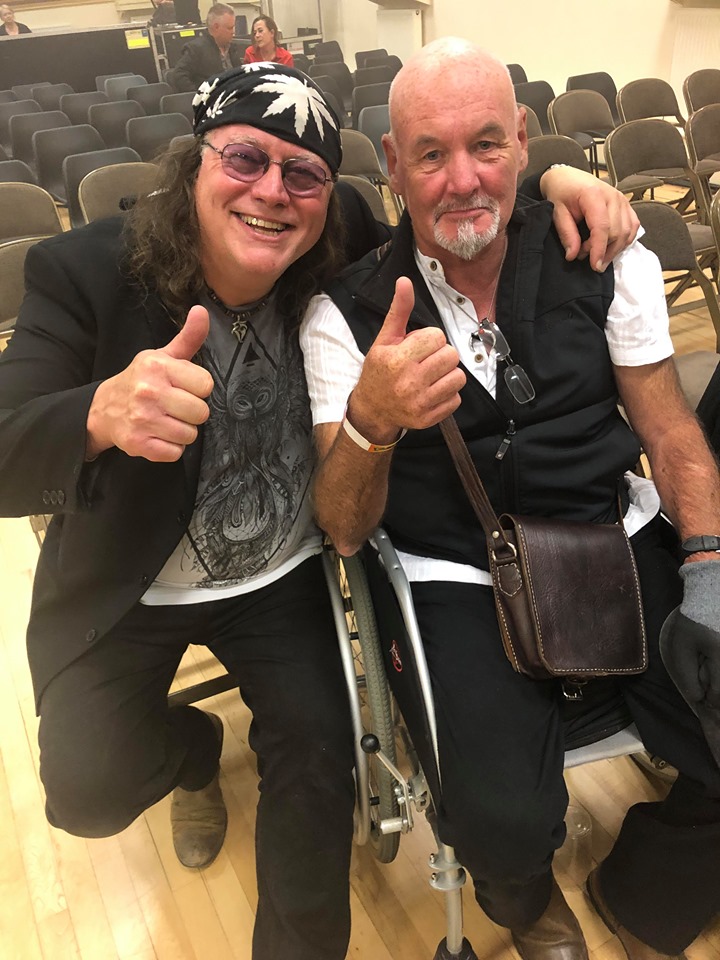
If you had to pick one totally surreal or unexpected moment from your career that really sums it all up, what would it be?
Frank: One of the most surreal moments in my career that really stands out was back in 1977 when I was at Ozzy’s house in Stafford. Mike Kidson, who was Phil Collins’ drum roadie, got in touch and asked me if I would be interested in joining the band Genesis as a second drummer. Can you imagine that?!!! Obviously I could not commit to that at the time because I was already trying to put something together with Baz, Dennis and Ozzy. Who knows what might have been if the circumstances had been different?
Klemen Breznikar
Headline photo: Necromandus (Dennis McCarten, Frank Hall, Baz Dunnery, Bill Branch)

